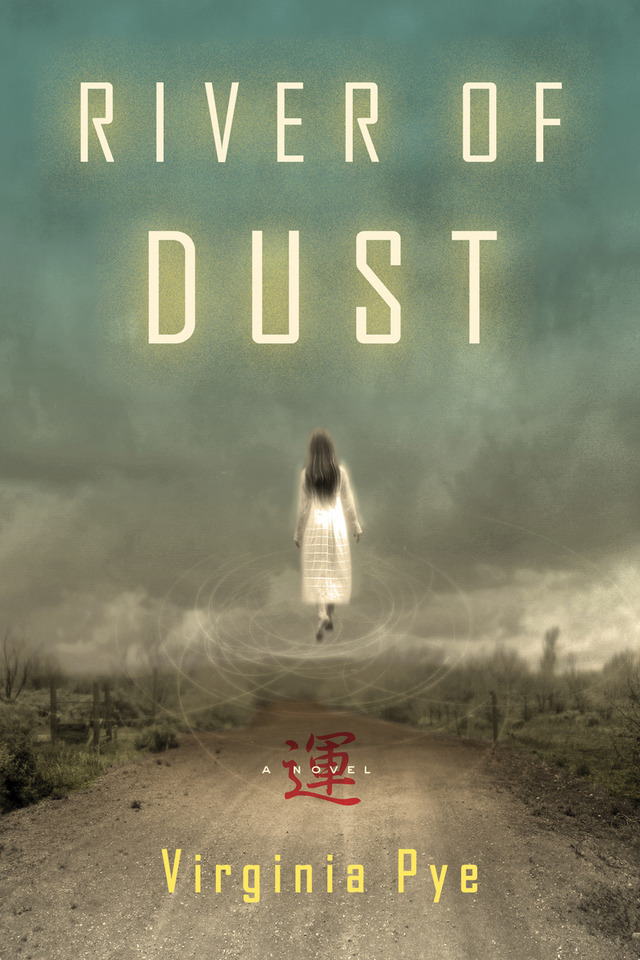Virginia Pye wrote her debut novel, River of Dust, in only 28 days. But as she recently explained during a session that I moderated at the Shanghai International Literary Festival, the book was a hundred years in the making.
Pye’s family has a long history in China. Her grandparents served as missionaries on the dry, dusty North China plain in the early twentieth century, an inhospitable environment that challenged even the staunchest believers in the missionary enterprise. Pye’s grandmother suffered two miscarriages before a daughter was finally born, only to die as a young girl. Reverend Watts O. Pye died a year later, leaving Virginia’s grandmother a widow who remained in China to raise her only surviving child, Lucian. Lucian grew up in the mission compound, then departed for college in the United States. (He would later become a prominent political scientist and leader in China studies.) Her grandmother stayed until she could not stay any longer, reluctantly leaving after Pearl Harbor put the United States at war with Japan.
For decades, Virginia Pye admits, she wanted nothing to do with this family history; a child of the radical 1960s, she distanced herself from her grandparents’ involvement in colonial missionary work. Only when she was cleaning out her father’s papers as he moved to an assisted-living facility did she discover Reverend Pye’s letters and journals, in which he described the stark beauty of rugged North China and his observations of daily life among the Chinese. A self-proclaimed “sucker for a good writer,” Pye found inspiration in these old documents and drew on her grandfather’s lyrical writings to create the setting for River of Dust.
Although River of Dust contains echoes of her grandparents’ lives, and snippets of Reverend Pye’s writing, the book is a work of fiction. Set in 1910, it follows an American couple as they grapple with the challenges of reconciling the ideals of missionary work with the reality of life in North China. Reverend Watson and his young wife, Grace, arrived in China with a clear vision of their role and confidence in the absolute correctness of their worldview. But the kidnapping of their toddler son and their desperate search for him turns the Watsons’ world upside down. Reverend Watson spends more and more time away from the mission compound as other foreigners whisper that he has “gone native,” while Grace, weakened by grief and a risky pregnancy, withdraws further and further into her own interior world.
It’s not a happy story, but Pye tells it skillfully, her complex plot drawing me in so completely that I stayed up far too late one night finishing the book so I wouldn’t fall asleep wondering what happened to the Reverend and Grace. Because she had her grandfather’s words to guide her, Pye has been able to offer a fully formed view of life on the North China plain, one that incorporates both its small beauties and large tragedies.
We find it difficult now to look on the missionary work of a century ago as anything but arrogance, borne out of a conviction that Westerners could “fix” the Chinese by introducing them to Christianity. The missionaries in River of Dust undoubtedly see the world from a high-handed and often condescending perspective. But they also have a deep appreciation, even love, for China and the Chinese in their community. Like Virginia Pye’s own ancestors, her characters question their assumptions about the differences between East and West and find their previously rock-solid convictions on shaky ground.
In many ways, I think Pye could not have written River of Dust if she hadn’t previously rejected, and later become engrossed in, her grandparents’ missionary work in China. If she’d been an uncomplicated supporter — or uncompromising opponent — of her family history, her novel would have been far less nuanced and sensitive. By coming to the story via a circuitous route, however, she enjoyed the benefit of a balanced perspective that lacked any particular ideological agenda. For a story this subtle, a century is not too long to wait.


